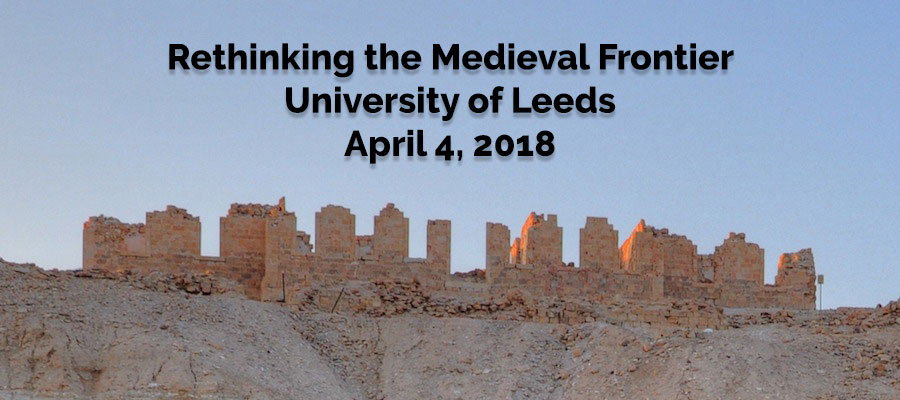Rethinking the Medieval Frontier, University of Leeds, April 4, 2018
Few topics in medieval studies have as much current relevance and activity as frontiers and borders. Yet approaches to their study in the Middle Ages are often untheorised, and compare, if at all, only to often outdated studies of the ancient or modern world. Yet medievalists are well placed, given the richness of their material and the complexity of medieval politics and society, to challenge such ‘classical’ ideas of The Frontier, whose weaknesses are now being exposed by current events. A fully comparative approach to the possibilities of what it meant to establish, live in or contest a frontier or border zone shown by the societies of late Antiquity and the Middle Ages can power the development of a new shared understanding of the processes at work where borders are laid down or transgressed.
- The project Rethinking the Medieval Frontier has been exploring such ideas since 2015. Its first one-day conference, made possible by a British Academy/Leverhulme Trust Small Research Grant, will take place on 10th April 2018. Scholars at all levels working on frontiers and borders within the period 100-1500 CE, in any geographical area, are invited to offer papers addressing questions such as these:
- Who defines or defined a frontier, and with what effect?
- How did the medieval understanding of the world envisage or describe frontiers?
- How was a frontier physically constituted?
- Did military frontiers differ from other sorts of border, and if so how?
- How do archaeologists’ views of medieval frontiers compare to those of historians?
- What persons or groups crossed medieval borders, and why? Who was prevented from doing so, and how effectively?
- What persons or groups lived in border zones, for what reasons?
- How far did frontiers and borders create or inform medieval identities?
- How do the insights of other disciplines studying frontiers apply to medieval societies,and
- How do medievalist disciplines differ in their study of frontiers?
